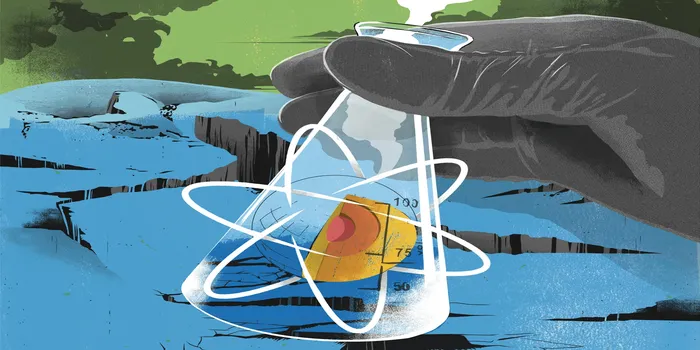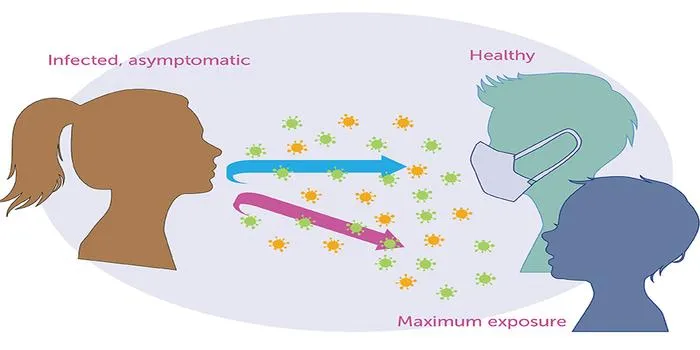- Home >
- Science
- > Exploration
Understanding why people reject science could lead to solutions for rebuilding trust
Understanding the reasons behind science rejection is crucial for restoring public trust in scientific institutions. Factors such as cognitive biases, misinformation, and cultural or ideological beliefs often contribute to skepticism. By addressing these underlying causes, scientists and communicators can develop strategies to effectively engage with the public. Encouraging critical thinking, transparency in research, and inclusive dialogue can bridge the gap between scientific communities and the public, fostering a more informed and trusting society.

In recent years, it has become increasingly apparent that a segment of the population harbors skepticism towards scientific findings. This phenomenon is not limited to a single issue but spans various fields, including climate change, vaccines, and evolutionary biology. Understanding why people reject science is crucial for addressing these concerns and rebuilding trust in scientific institutions. By examining the factors that contribute to this rejection, we can explore potential solutions to foster a more informed public.
The Role of Misinformation
One of the primary reasons individuals reject scientific consensus is the prevalence of misinformation. In the age of the internet and social media, false information can spread rapidly, often outpacing factual data. This deluge of misleading content can create confusion and erode trust in scientific authorities. Studies show that misinformation can lead to significant misconceptions about topics such as vaccination safety and climate change impacts.
To combat misinformation, it is essential to promote ''scientific literacy''. Educational initiatives aimed at improving critical thinking skills can empower individuals to differentiate between credible sources and dubious claims. By equipping people with the tools to assess information critically, we can mitigate the influence of misinformation and enhance public understanding of scientific principles.
Emotional and Psychological Factors
Another significant factor influencing the rejection of science is the emotional and psychological context within which individuals process information. People often hold beliefs that align with their values and identities, leading to cognitive dissonance when confronted with scientific evidence that contradicts these beliefs. This phenomenon is particularly evident in contentious debates such as climate change and vaccination.
Addressing these emotional barriers requires a nuanced approach. Rather than simply presenting scientific facts, it may be more effective to engage in dialogues that acknowledge individuals' feelings and beliefs. Building empathetic communication strategies can help create a space where people feel heard and understood, making them more receptive to scientific ideas.
The Influence of Social Networks
Social networks play a pivotal role in shaping individuals' beliefs about science. People are influenced by their peers, family, and community leaders, often prioritizing social validation over scientific evidence. When individuals are surrounded by others who reject scientific consensus, it becomes increasingly challenging for them to accept contrary information.
To counteract this social influence, community-based interventions can be powerful. Engaging local leaders and trusted figures to disseminate accurate scientific information can help shift perceptions. Moreover, fostering environments that encourage open discussions about science can lead to a more informed community overall.
Political Polarization
Political polarization has emerged as a significant barrier to accepting scientific findings. Research indicates that individuals' political affiliations often dictate their views on scientific issues. For example, support for climate action tends to vary dramatically between political parties, with some groups outright rejecting scientific evidence that contradicts their political ideology.
To bridge this divide, it is essential to depoliticize scientific issues. Framing scientific discussions in a non-partisan manner can help engage individuals from diverse political backgrounds. Highlighting shared values, such as public health and economic stability, can create common ground and encourage a collaborative approach to scientific acceptance.
Building Trust through Transparency
Trust in science can be significantly improved through transparency. Public skepticism often stems from a perceived lack of transparency in scientific research and decision-making processes. When individuals feel excluded from the conversation or believe that scientists are withholding information, distrust can flourish.
To rebuild trust, scientific institutions must prioritize transparency in their work. This includes openly sharing research methodologies, funding sources, and potential conflicts of interest. By fostering an environment of openness, scientists can enhance credibility and encourage public engagement with scientific findings.
Utilizing Technology for Engagement
Advancements in technology offer innovative ways to engage the public with science. Platforms that promote interactive learning experiences and provide access to credible scientific information can bridge gaps in understanding. For instance, educational apps, webinars, and online forums can facilitate discussions that encourage curiosity and critical thinking.
Integrating technology into educational initiatives can also enhance scientific literacy. Gamification, for example, can make learning about complex scientific concepts more accessible and enjoyable. By leveraging technology, we can create a more informed populace that values and trusts scientific research.
Conclusion
Understanding why people reject science is a multifaceted issue that requires a comprehensive approach. By addressing the roles of misinformation, emotional factors, social networks, political polarization, and the need for transparency, we can develop strategies to rebuild trust in scientific institutions. Ultimately, fostering an environment that values open dialogue, critical thinking, and accessible information will pave the way for a more scientifically literate society.
In conclusion, the path to rebuilding trust in science involves not just presenting facts but also understanding the social and emotional contexts that influence belief systems. By engaging communities, utilizing technology, and promoting transparency, we can work toward a future where science is embraced and trusted.












